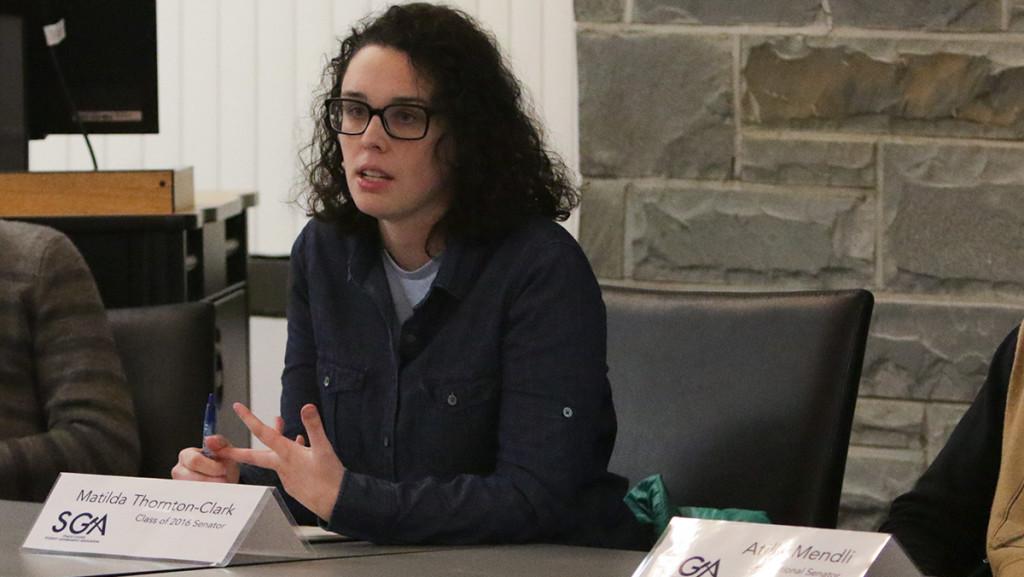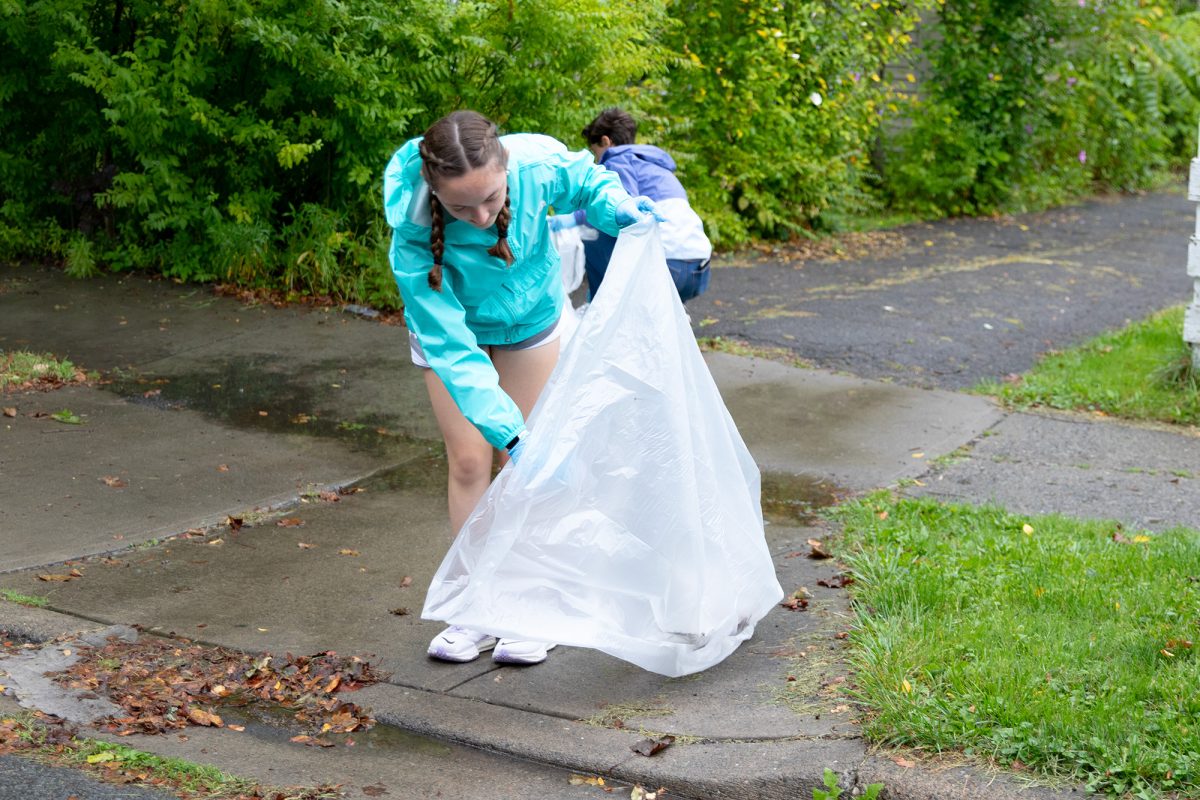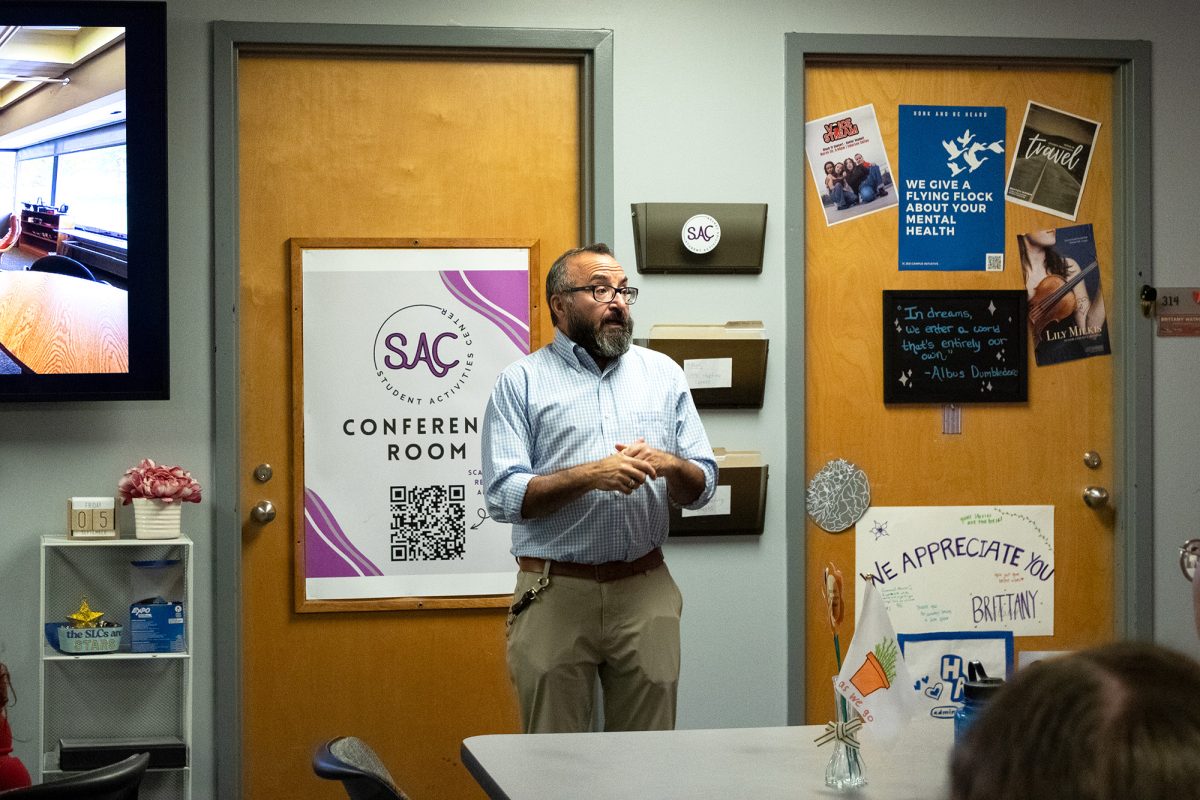The Ithaca College Student Government Association has passed a bill to initiate discussions on the college’s use of open textbooks.
The bill was proposed at the Feb. 22 meeting by Matilda Thornton-Clark, Class of 2016 senator, and Thomas Horgan, Class of 2019 senator.
Open textbooks are textbooks licensed under an open copyright so they can be made available to the public for free. Horgan said professors can contribute their work to an open textbook database, edit textbooks that are already on the database and provide free access to the texts for their classes.
“Any professor can get this text, modify it, share it with their students and do anything they want to this,” Horgan said. “However, it’s not like the Wikipedia for textbooks. There is a stringent review process by other professors.”
Thornton-Clark said open textbooks are not intended for professors who have been consistently reliant on the same textbook for many years but that they offer other professors who feel confined by the traditional textbook more freedom in designing their curriculum.
“For them, it gives them the opportunity to teach the course as they see fit and then to adjust the textbook,” she said. “That’s what a textbook should be. A textbook should be a tool to help teach. It shouldn’t be the actual method of teaching.”
According to a study cited in the bill, open textbooks save students $128.00 on average per class when their traditionally published textbook is replaced with an open textbook. Horgan said the only cost to students would be printing.
According to an NBC article cited in the bill, textbook prices have increased disproportionately to economic inflation. According to another study cited in the bill, open textbooks are a low-cost alternative to physical textbooks that benefits both professors and students.
According to the bill, the SGA will support initiatives to look into bringing open textbooks into classrooms, and any other students interested in open textbooks will work with the provost, deans and professors to promote further use of open textbooks and materials.
Thornton-Clark said their next move will be to speak with deans of the schools and professors. She said they do not know which dean or professor they will meet with first.
Passing the bill gives the SGA credibility in it’s discussion with faculty and members of the administration, Thornton-Clark said.
“When we go to the dean or the provost, hopefully, we can say, ‘Look, we have the support of student government,’” she said.








